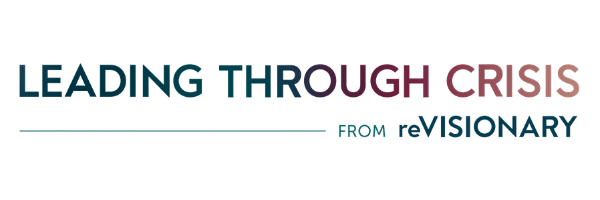The Danger of Silence with Elaine Lin Hering
Listen to this episode on Apple Podcasts or Spotify
For better or worse, I’m very aware that I have walked through a lot of my life challenging social and societal norms. I had the great fortune (or misfortune, age and stage of my life dependent) of being raised by two parents who didn’t have a lot of time for the status quo. Both of them, in their own ways, were looking for better ways of living and doing things, outside of the traditional ways they had been exposed to where they were raised. I often think this was a big part of the reason they found each other when they did.
Despite many differences (age, culture, religion, education, family history, etc), they also had some very specific similarities. They both immigrated as adults, with no family in tow, to an entirely new continent in hopes of setting up a new life for themselves (my mother doing so without speaking any English prior to moving – which is mind-boggling to me!).
They both valued education, but also believed formal education was overrated and that we could learn as much on our own if we chose to do so (a much more popular opinion now than it was in the 60s and 70s).
They were both entrepreneurs who had no interest in working in traditional ways, nor any interest in spending much of their time in traditional ways. Both of them prided themselves on being “weird” and independent and encouraged the same in me.
I was raised by parents who encouraged discussion, disagreement, and the sharing of opinions and wanted me to be as independent as possible, as young as possible – not for their benefit, but for mine. My parents modeled a very different type of relationship than most of the ones I saw (or sadly, often still see) around me and taught me to be always curious without judgment, to know my boundaries, and to speak up for myself.
When I was younger, I genuinely didn’t recognize this for the gift it was. In fact, I spent far too many years ignoring everything they had taught me to chase conformity and trying to fit in. I didn’t want to be different, I wanted to be like everyone around me in all the ways. I convinced myself that working in a very traditional environment, doing a job I didn’t care about for a company that didn’t care about me, was the path to stability and therefore, happiness. I secretly wished I wasn’t single whenever I was single, and therefore venerated every person I dated early on because a relationship was the path to acceptance, and therefore happiness. At one point, I even convinced myself I was excited to have a child with someone I was dating at the time (despite knowing I never wanted kids) because a family was a path to normalcy, and therefore happiness.
**Now, I want to be perfectly clear here, there is absolutely nothing wrong with working a traditional job, being in a relationship, or having children. However, my reasons for thinking any of those things were my path to happiness, were extremely problematic and ultimately, untrue.
I maintain to this day that there is room for all of us and all our varied choices and ways of living on this planet. I was just ignoring every instinct in my body screaming that those things, at least in those ways, weren’t for me.**
In essence, I was silencing myself. And unfortunately, that ultimately turned into me silencing others as well, by judging them for not conforming the way I was trying to.
And all of that was despite having few, if any, of the traditional expectations or pressures from my parents or family to contend with that so many people have and do.
Now, imagine what this looks like on a societal level…
Thankfully, Elaine Lin Hering author of the forthcoming book: Unlearning Silence: How to Speak Your Mind, Unleash Talent, and Live More Fully, has done exactly that.
In this week’s episode of Leading Through Crisis, Elaine invites us to ask some deep and important questions about personal agency, leadership responsibility, and how silence impacts our lives, work, families, organizations, communities, and the world.
She also reminds us that “Our silence isn’t just about us. It’s about the environmental and cultural norms that we collectively build.”
We have all learned what is “professional/nice/appropriate” and what’s not going to get us in trouble, at work and out in the world. The contours of our silence and our relationship with silence are different for each of us. But, we have all learned silence. And, the more people are silent, the more that becomes normed.
Reflecting on my own experience and lessons learned in this area, I recognize (deeply) the significance of embracing our true selves and allowing others the same freedom.
It’s time for us, as leaders, to foster environments that celebrate individuality, encourage open dialogue, and reject the pressures of conformity – even, and maybe especially, in corporate and more traditional spaces.
“If we have one life to live, let’s live it well – as determined by our own internal metric of what that means.”
—
Elaine Lin Hering is Managing Partner of Triad Consulting Group and a Lecturer at Harvard Law School. She works with leaders to diagnose challenges and build capacity in negotiation, influence, and conflict management skills. She has worked on six continents and facilitated executive education at Harvard, Dartmouth, UC Berkeley, and UCLA. She coaches women and minoritized individuals navigating executive leadership in majority white spaces. She is the author of the forthcoming book, Unlearning Silence: How to Speak Your Mind, Unleash Talent, and Live More Fully (available for pre-order now).
To learn more or to connect with Elaine visit elainelinhering.com. You can also find her on LinkedIn, Instagram, and Twitter.
